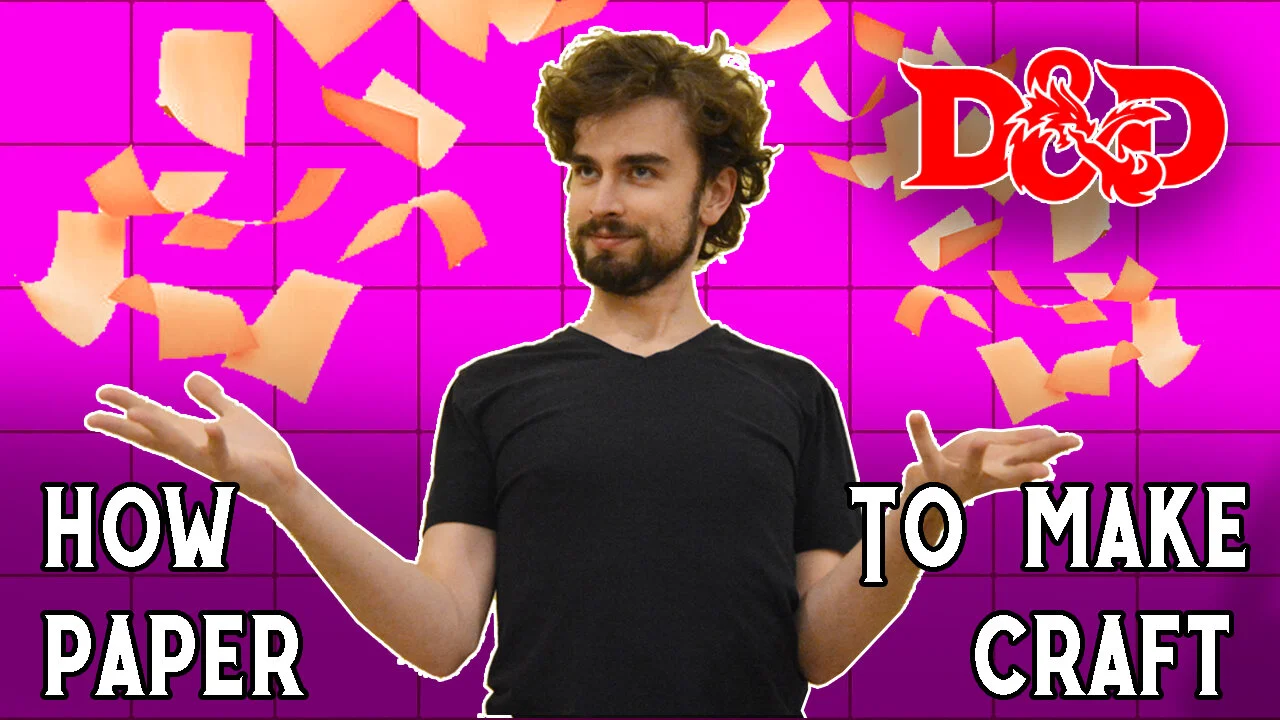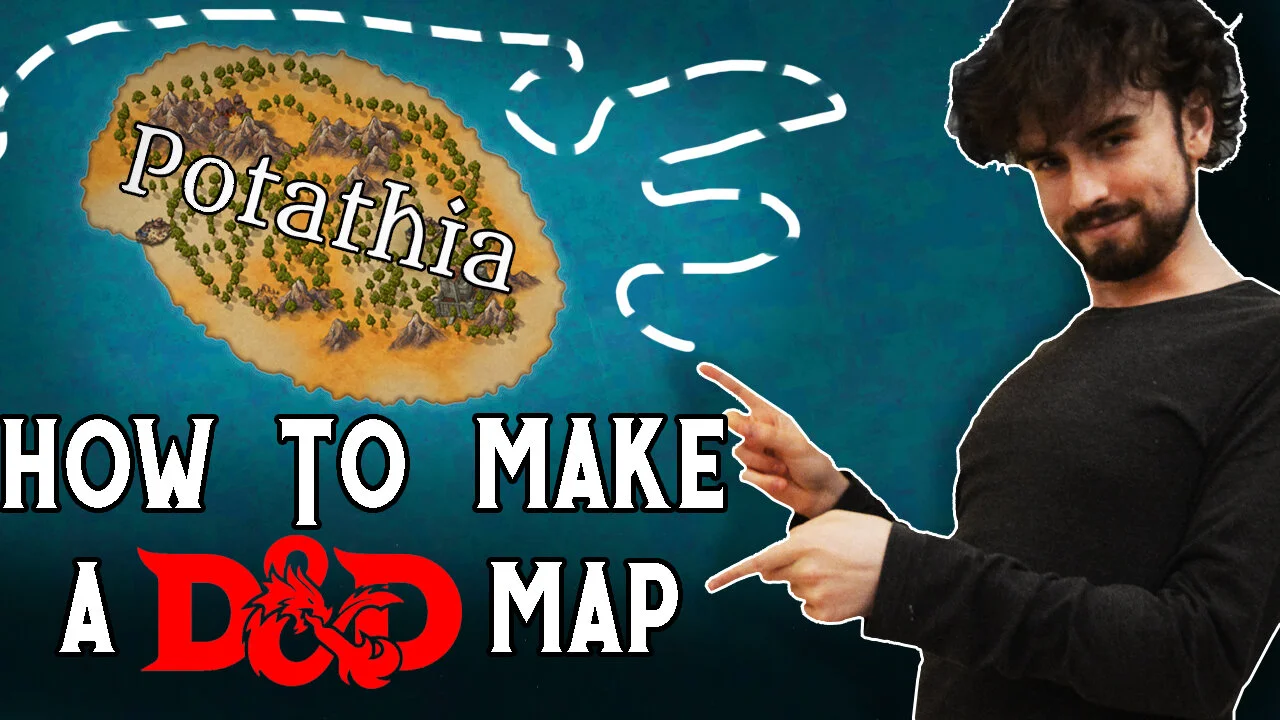How To Incorporate Economy Into your DnD Game
I like a little bit of realism in my DnD games. I like City Building games, and I think it's rather fun to try and have some elements of the economy in my DnD world. By implementing a couple of things that emulate the economy, it made my merchant/shop/guilds more interesting and believable, and today we will take a look at those ideas.
So, I've been working on this system for quite a while. It's almost the same system that I use on my other NPC's, similarly like "I Run my Villians" in DnD5e. And that is the Power Die system. To preface, I run a game, where the town evolves, NPC's upgrade their buildings, guilds, and so on. So these kinds of ideas make sense for my game, but I hope you find some ideas for your table also.
Now the whole idea about this system is that the Power Die represents the results that NPC's, Villians, and Kingdoms can yield. It starts at 1d4 and can end up to 1d20 for an NPC/Villians. After each session, I roll whether the Villians, NPC's succeed in their actions and give or take away the said resources. This system leads the NPCs/Villians and Kingdoms to decide what do they want and try their way to get the resources.
How does that look for a Simple Merchant?
If I'm running a simple merchant, I give him a bit of starting equipment, maybe a skill. For instance, he is a potion seller/maker. His power die is 1d4 what that means is that after a session, the Potion seller can try to Make some potions,Sell, or Recruit, some employees. So let's say he rolls successfully and rolls to make 1d4 potions - Rolls 2 - He makes two simple Health Potions. If I say, the materials cost around per bottle about 25GP, and he could make 50GP this session. Well, why should we care that a merchant made 50GP this session? Well, I think it's rather realistic that if the party arrives at the potion seller, there would be times where something could happen that there are no potions in the shop. If the NPC failed the roll, maybe a thief grab them, and now you have a hook to deal with the local thieves guild, maybe he gave them away to a child because his only parent is becoming a werewolf or deathly sick by a strange sickness?
It's easy to say, yeah, you can figure this thing out without using no rolls or systems, but It brings a certain uncertainty to my games, and then I need to figure out some way justify the unsuccessful rolls my NPC's are getting. And that brews stories I haven't thought about it yet and starts to connect the dots.
How does that look for a Guild?
Let's say a notorious and cutthroat thieves guild plagues the town. It's the main party objective, to somehow take this city back to the people, change the government of the place, burn the guild down... Whatever. But Let's say that the power dice for this guild is 1d12. This guild is well established. It has 5 NPC members(Including a Guild Master)that can each roll for 1d12 result every session, which means that its Power could yield 5d12 Power over the town. And the guild could have around maximum 60 henchmen to their disposal since its the cap for the power level. What does this mean? Well, if a party wants to kill all the thieves in town, that's like 65 NPCs, hey it's an option. Maybe they kill just 5-10 of them, that leaves us with 60-55 left. If there is a lot of ruckuses, the guild will take notice of this party and spend its resources to deal with the party. The guild could go on the defense if the numbers start to dwindle, maybe instead of attacking, there will be more recruiting in town for the guild, and your party can infiltrate the guild itself. There is so much potential when you start simulating a bit the available resources of the Guilds and NPCs.
If you have a decent guild, maybe they are looking to expand, perhaps they would need a particular magic item to create higher quality goods. Or have their competition steal that item from them. This approach lets you think outside the box and don't lose what the Guilds are trying to achieve. I sometimes give boons that the quest givers can have after the Quest is completed.
How does that look for a Kingdom?
Now, Kingdoms, I run a bit differently. I give them Power Dices of 1d100 and up and let them roll for effect. For Example, they try to collect taxes, recruit armies, and all of that 1d100 - so a Kingdom rolled 75 that's *10 if collected leaves us with 750GP per session. They can try to improve their cities, mines, walls whatever and get some boon for doing so. For instance, an abandoned mine by demons could bring additional 1d100 every session. The leader could think... Hmmm okay, I'm going to spend that 750GP for adventurers to clear that thing out and have a better Kingdom. So it could bring new adventures just by creating these artificial boons for the Kingdoms and enhance the story altogether. What if other Kingdoms have seen the success of the previous Kingdom and wage war? There you go another quest for the party, and your world becomes a vibrant place that lives, and your party is what shapes it.
I think all of this brings a bit of realism into your games, and I love this simulation approach to enhance my stories and my world. Because when you are running the merchants, the guilds, kingdoms, and villains like this, you start thinking creatively how to make them better, what is the next step. Hit a max cap of recruits? Maybe I will need to invent a boon item, building, or whatever that the NPCs require and, in turn, create new adventures?
Managing Production
Maybe the said simple merchant, got the shingles and evolved his Power Die, should he only level up? Perhaps not, maybe he is okay with trying to improve his buildings, which could yield him more gold. After some sessions, what could you know, perhaps a small merchant through luck and hard work become one of the influential members of the town council and remembers quite well the pesky adventurers when they made fun of him.
But managing what they could produce is another fun way to incorporate the economy in your game. Maybe one place could produce weapons, armor etc. that your party could start buying for cheaper and selling in other areas. But what's matters is that you see the progress that is continuously changing, maybe the descriptions of the towns start to change with time, and I think it's exciting for your players to know that they were a part of it.
More Interesting Downtime
Why I like this approach is that you can't go too much into worldbuilding, because you get lost in the process. You're getting lost into the depth of the places, villains and NPCs you're the thing to create. As a Dungeon Master, you start to want to give as much to the current content that you make, to oppose making as much of material that is just boring and bland. These ways to incorporate economy in your game, lets you create more interesting hooks, have more justification of your characters/kingdoms and villains you're trying to run. And I think it makes the downtime, exponentially more interesting when your players can discover new things about their favorite NPCs, Guilds and of course Villains.
For what is worth
I don't think you should count every penny that a merchant has in his pocket or the price of DnD wine(Actually, the math doesn't add up at all economically if you are buying a barrel of wine with the price a jug of wine, I did the math...). I think you would only use this as a loose guide for what your NPCs can create and use it as a tool to enhance your story and your game. I hope you enjoyed this blog post, comment down below your thoughts on it. Have a great week!
If you enjoyed this article and want to see more of Dungeon Goblin content, consider supporting us by making a direct donation through our blog or supporting us on Patreon. Dungeon Goblin is a new blog, and your support matters immensely to us. We want you to become one of the first Dungeon Goblin supporters and grow it into something amazing one day. Thank you for reading!





